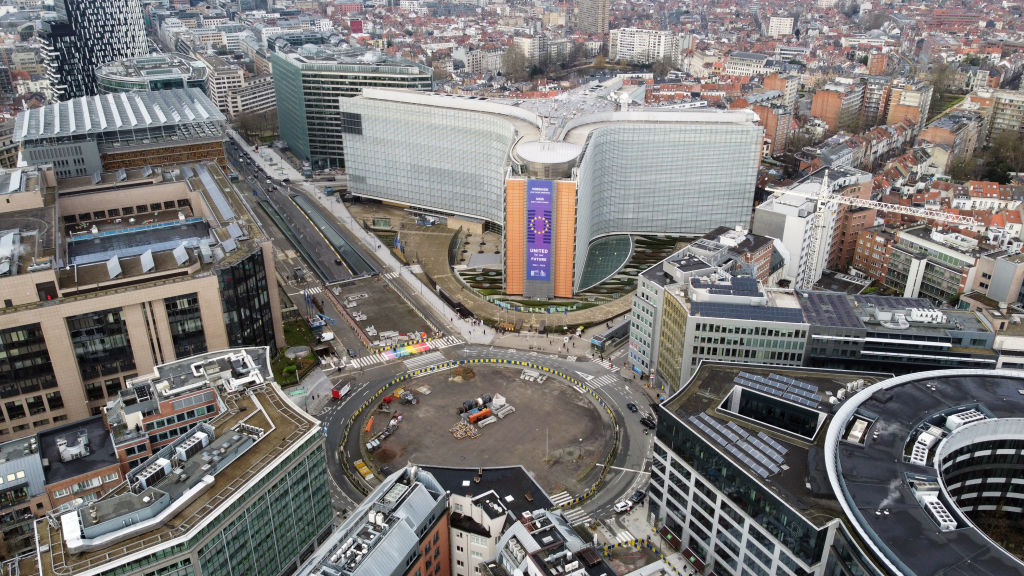The eurozone economy grew by 0.1% in the second quarter of this year, according to preliminary figures released by Eurostat on Wednesday, defying forecasts amid growing concern over the impact of the recent EU-US trade deal.
This modest expansion represents a slowdown from the 0.6% GDP growth recorded in the first quarter, but it still exceeded the zero growth predicted by economists in a Reuters poll.
Stronger-than-expected results in Spain (up 0.7%) and France (up 0.3%) helped offset contractions in Italy and Germany. Italy’s economy unexpectedly contracted by 0.1%, while Germany – the eurozone’s largest economy, whose export-dependent industries are heavily exposed to US President Donald Trump’s sweeping levies – also shrank by 0.1%.
Compared to the same period last year, eurozone output rose by 1.4%. Growth across the wider EU was slightly stronger, with a quarterly expansion of 0.2% and a year-on-year growth of 1.5%.
The figures come just days after the announcement of a new EU-US trade deal on Sunday, which will impose a 15% levy on most EU exports to the US. This replaces the previous 10% US blanket tariff but falls short of the 30% duty previously threatened by Trump.
Many economists, including those at Deutsche Bank and Capital Economics, now predict that the deal will reduce EU output by around 0.5% this year, reflecting a slight downgrade from earlier projections.
ING analysts estimate the deal will lower EU growth by between 0.1 and 0.2 percentage points compared to their forceast made before “Liberation Day” in early April, when Trump announced sweeping “reciprocal tariffs” that briefly rattled global markets before being suspended.
However, the analysts also stress that their forecasts are clouded by the fact that many aspects of the EU-US deal – including the specific levies on steel, aluminium, and alcoholic beverages – still need to be ironed out.
IMF lifts outlook
On Tuesday, the International Monetary Fund raised its eurozone growth forecast for 2025 from 0.8% to 1%. However, it noted that the new trade deal had not been factored into its latest estimate.
The IMF also noted that the uptick was primarily driven by a “historically large increase” in pharmaceutical exports from Ireland to the US over the first three months of the year. Without this boost, the IMF said the forecast would have increased by just 0.1 percentage points.
Separately, a closely watched business survey published last week showed private sector activity across the eurozone rising to an eleven-month high in July, largely driven by an expansion in German manufacturing.
Cyrus de la Rubia, chief economist at Hamburg Commercial Bank, said that “even higher US tariffs should not fundamentally change” Germany’s industrial recovery, which has been bolstered by government plans to invest up to €1 trillion in infrastructure and defence over the next decade.
(de)
